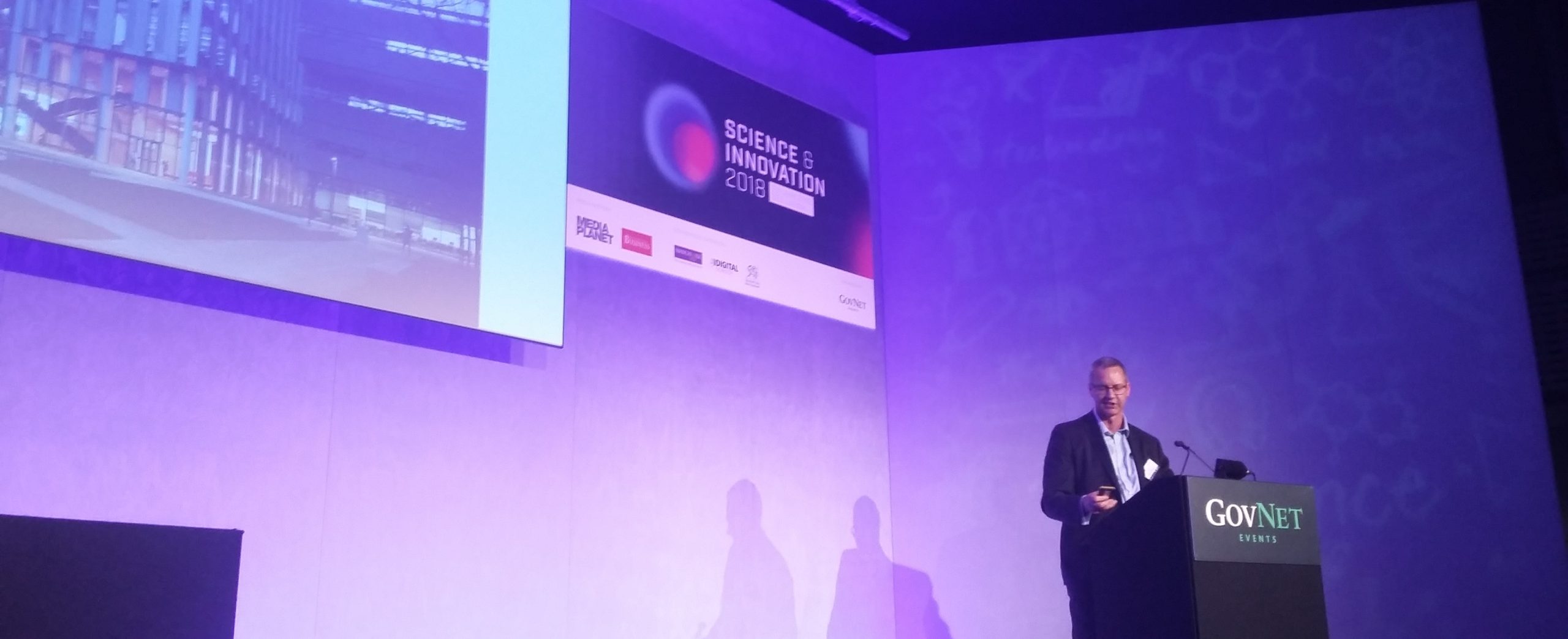Delivering new technologies to benefit the UK economy and society requires a sharing culture across academia, according to James Baker, CEO of Graphene@Manchester and supporting partner of the Henry Royce Institute.
Addressing the UK research community at Science and Innovation 2018, James said the Royce is uniquely positioned to help create the demand for innovation in advanced materials and deliver the knowledge which will underpin future technologies.
From consumer electronics and transport, to lifesaving biomedical implants and low cost renewable energy, the Royce will share knowledge and access to facilities across its nine partner institutions.
Bringing businesses into this collaborative environment can help to speed up innovation and ensure we capitalise on the UK’s leading position in advanced materials, says James.
What really excites is how we can build multi-functionality into our materials. For example, can I add Graphene to a composite to reduce manufacturing time? To reduce weight? To improve range? To reduce emissions?
However, we have a challenge. Let’s take carbon fibre as a case study. There was 25 years from the discovery of carbon fibre to the first products hitting the marketplace. A lot of the discovery work was done in the UK but in that long commercialisation period a lot of manufacturing moved abroad. So materials give us great opportunity, but great challenges too.
By linking up business and academia, and cross cutting areas of excellence, innovation can be accelerated; from discovery, to prototyping, to commercialisation. As a representative of the 2D research theme at Royce, James pointed to examples of commercialisation from the National Graphene Institute including a new graphene composite training shoe which will be launched in June this year.
Speaking after Mike Biddle, Programme Director for the Industrial Strategy Challenge Fund (ISCF), James welcomed the drive from UKRI to meet future challenges and spoke about the need to link up successful ISCF projects to create further advances and commercial advantage.
(We need) a clear industrial pull. Who would have thought 5 years ago that we’d be talking about getting rid of all diesel and petrol cars? I remember when an electric car was being developed to be entered into Le Mans 24 hour race. The joke was that after 2 laps it would be leading the race and then it would take 23 hours to recharge.
We starting to see opportunities to collaborate across materials themes. For example a combination of light weighting and new battery technology could really start to transform some of the challenges we have around electric vehicles. And not just for road vehicles, but for aircraft too. So there’s a key role for Royce, academia and business working in partnership.
Also on the agenda at Science and Innovation 2018, David Connell outlined the imperative for increasing the demand for innovation by encouraging the public and private sectors to play a lead customer role by placing innovation contracts, particularly with start ups and SMEs. To meet this demand, James Baker called on UK businesses and academics to look to succeed or fail quickly with innovation. According to James, doing this effectively relies on linking up multidisciplinary researchers in new models of organisation, like the Henry Royce Institute.
How can we create a ‘make or break’ culture that can rapidly create and prototype technology? So if we want something to work, how do we get it to work quickly and repeatedly. And if it’s going to fail, we want it to fail fast, so that we can move on, and learn, and accelerate to the next stage.
Part of this is about multidisciplinary research. How do I get the physicists talking to the chemists, talking to the biomedical scientists. With Royce, we can do that and across different institutions.
James Baker is CEO of Graphene@Manchester.
2D Materials @ Royce
The University of Manchester leads the 2D Materials research theme at the Henry Royce Institute, which brings together the Royce partner universities of Cambridge, Leeds, Sheffield, Imperial College London, and Oxford.
Follow @RoyceInstitute on Twitter
Follow @JamesHBaker1 on Twitter
Follow the Royce on LinkedIn



